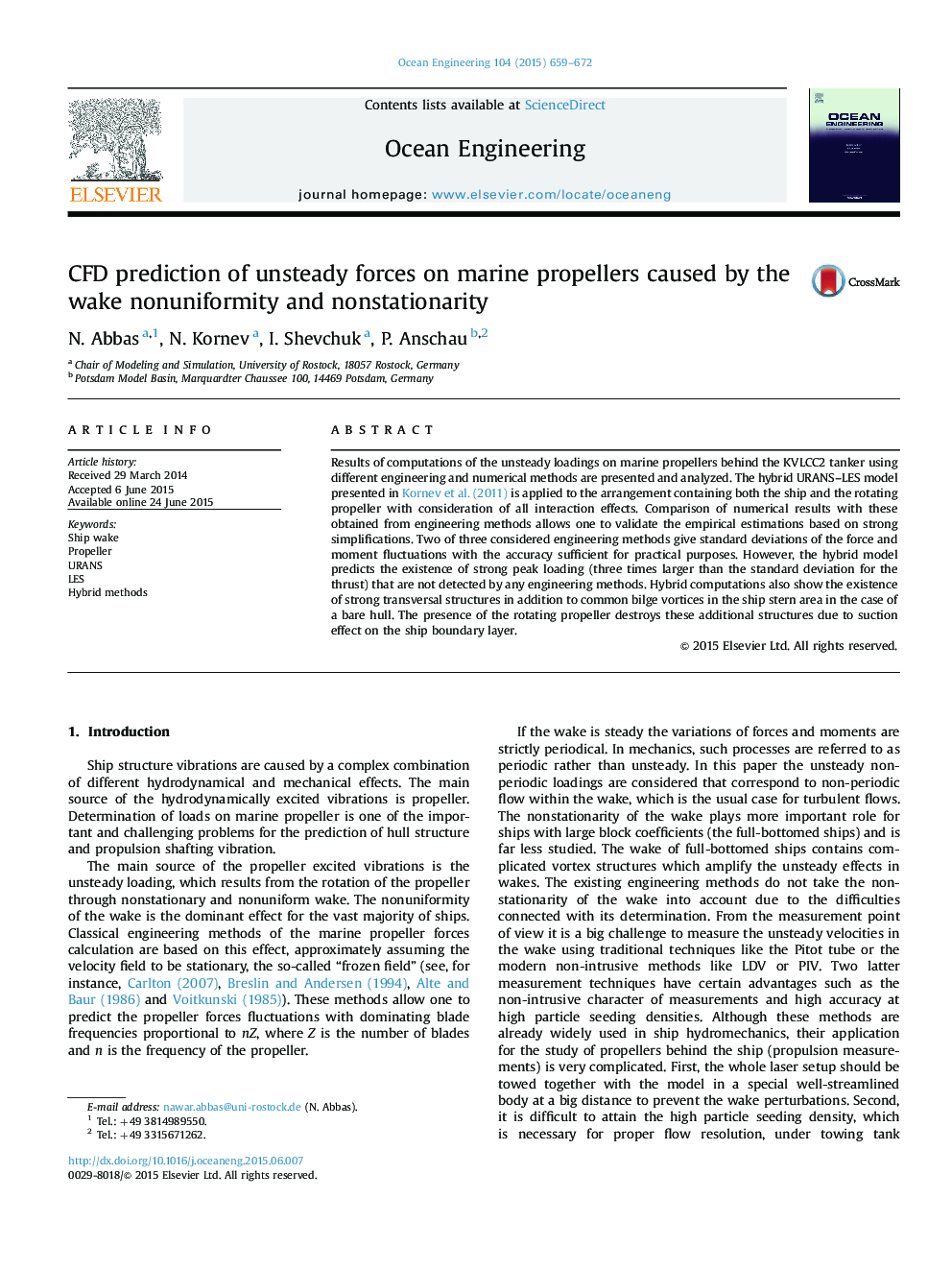| کد مقاله | کد نشریه | سال انتشار | مقاله انگلیسی | نسخه تمام متن |
|---|---|---|---|---|
| 1725389 | 1520686 | 2015 | 14 صفحه PDF | دانلود رایگان |

• Forces on propeller caused by unsteadiness of the ship wake are studied.
• Numerical simulations are performed using hybrid URANS/LES method.
• Standard deviations of forces agree well with existing engineering methods.
• Peak loadings can be detected only using hybrid method.
Results of computations of the unsteady loadings on marine propellers behind the KVLCC2 tanker using different engineering and numerical methods are presented and analyzed. The hybrid URANS–LES model presented in Kornev et al. (2011) is applied to the arrangement containing both the ship and the rotating propeller with consideration of all interaction effects. Comparison of numerical results with these obtained from engineering methods allows one to validate the empirical estimations based on strong simplifications. Two of three considered engineering methods give standard deviations of the force and moment fluctuations with the accuracy sufficient for practical purposes. However, the hybrid model predicts the existence of strong peak loading (three times larger than the standard deviation for the thrust) that are not detected by any engineering methods. Hybrid computations also show the existence of strong transversal structures in addition to common bilge vortices in the ship stern area in the case of a bare hull. The presence of the rotating propeller destroys these additional structures due to suction effect on the ship boundary layer.
Journal: Ocean Engineering - Volume 104, 1 August 2015, Pages 659–672